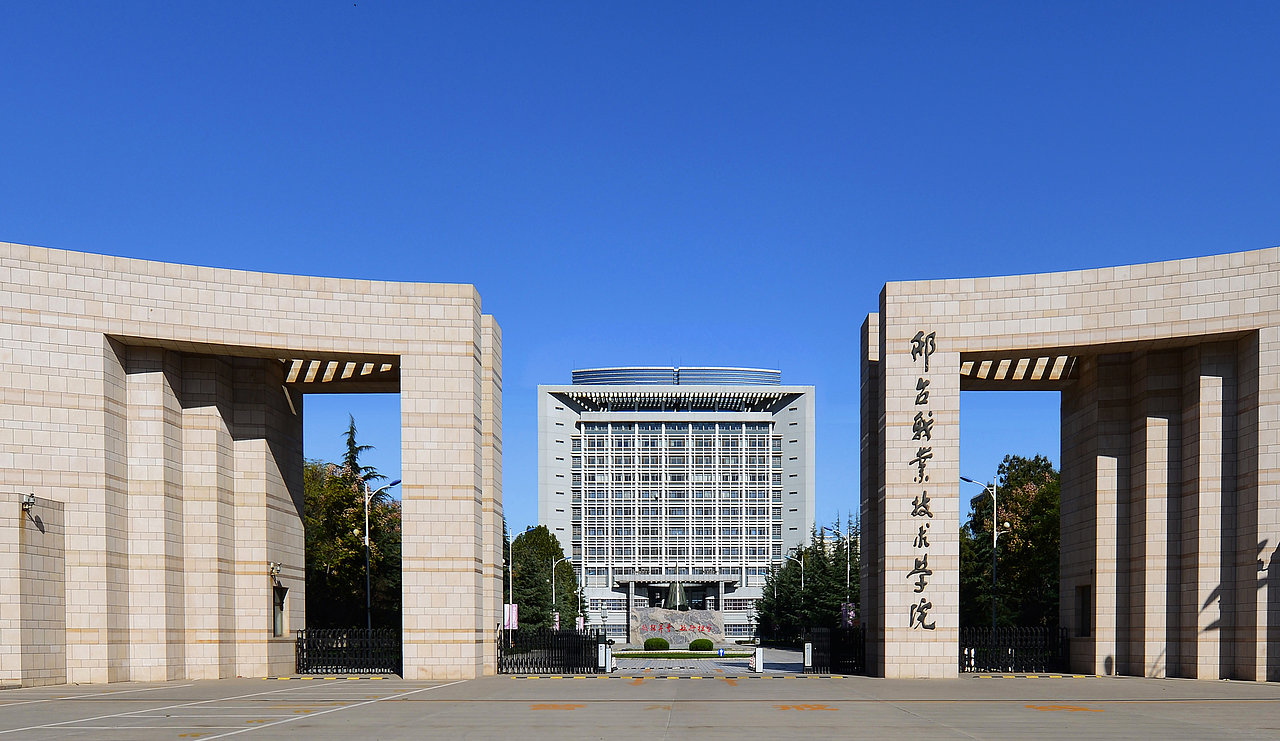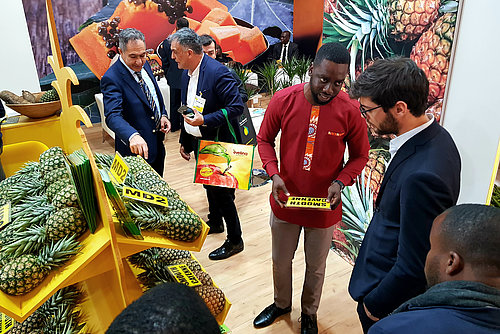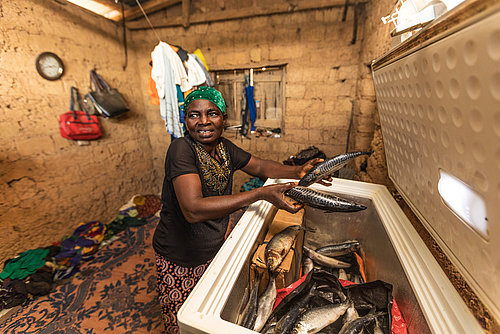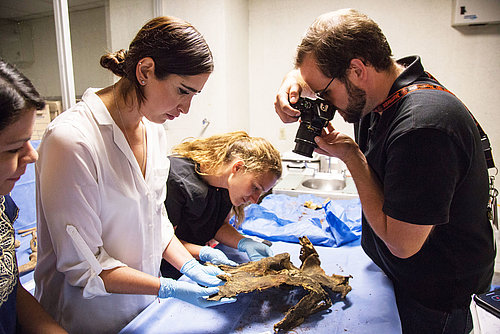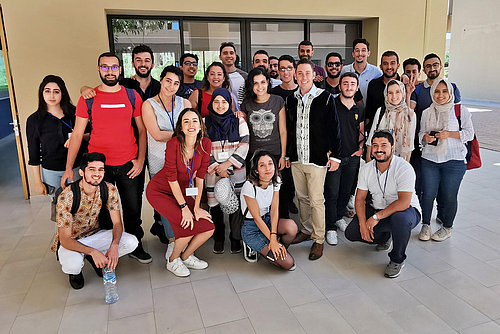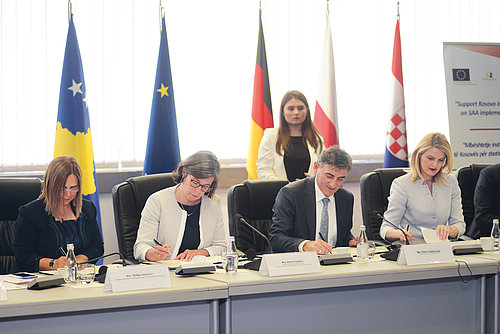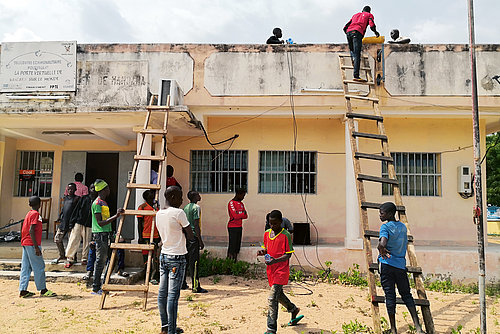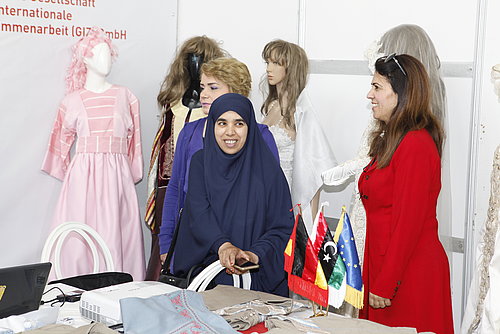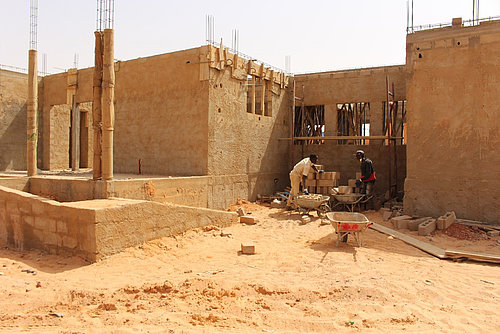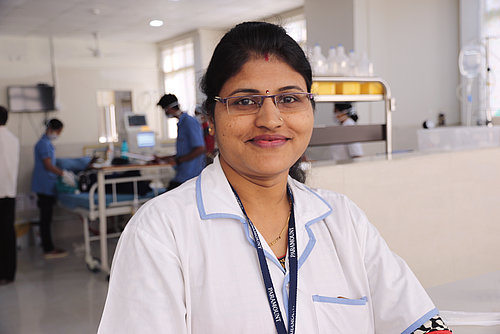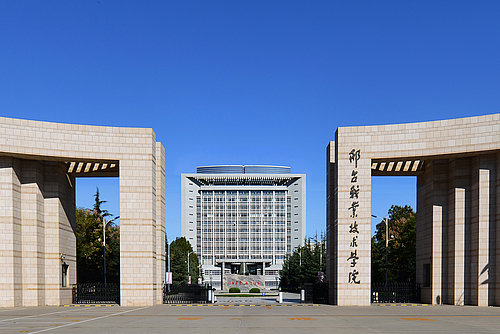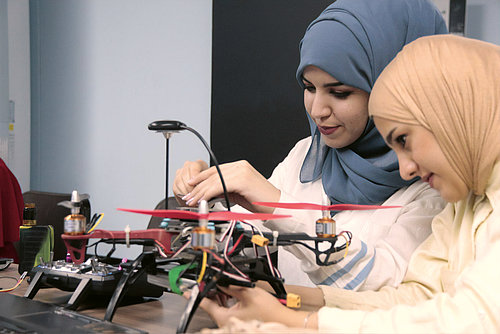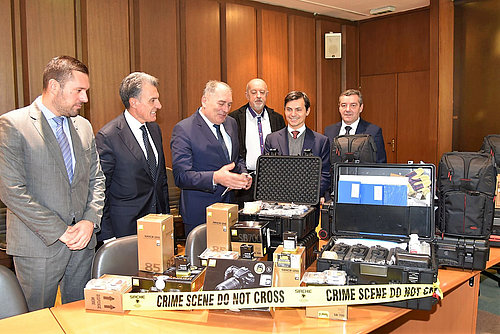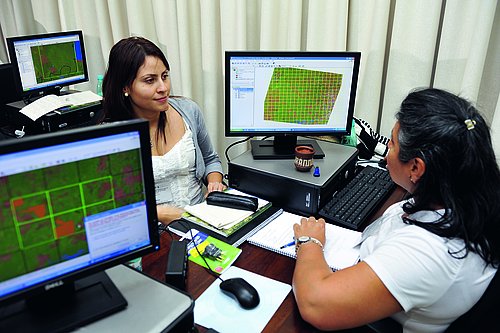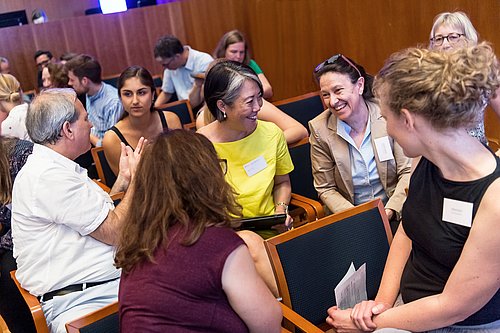The contribution that GIZ can make to skills development within the technical and vocational education and training (TVET) system is illustrated by a model project in the Chinese province of Hebei and the commitment shown by vocational school principal Dou Xinshun. He came to Germany in the mid-1990s under a scholarship scheme with one of GIZ’s predecessor organisations. During his time there, Dou Xinshun familiarised himself with the TVET structures in Germany and completed an internship at a major German company. Since then he has given much thought to the question of how young people in China can best be prepared for their future working lives. He receives advice on this from staff at GIZ’s Academy for International Cooperation (AIZ), which delivers skills development for experts and managers in the field of international cooperation.
Dou Xinshun is now the principal of the Shijiazhuang Institute of Railway Technology (SIRT), a vocational school in Hebei Province with around 10,000 students. The province surrounds the cities of Beijing and Tianjin, and is in the process of being developed into a modern, powerful economic region in northern China. To achieve this, Hebei needs a well-qualified workforce and with this in mind it is following the path of Germany’s dual vocational training model.
In 2019, the provincial government in Hebei commissioned GIZ to adapt its TVET system to the challenges of the future, so that people gain the skills the region needs. The aim is to improve the quality of TVET in 13 vocational schools that have five different areas of specialisation. This involves drawing up needs-based curricula in line with German job profiles, training teaching staff and examiners, and introducing practice-based training methods.
The commission is being implemented by AIZ through GIZ International Services (InS). InS assumes responsibility for cooperation with commissioning parties such as non-German governments, private companies or international institutions, with approval from the German Government.
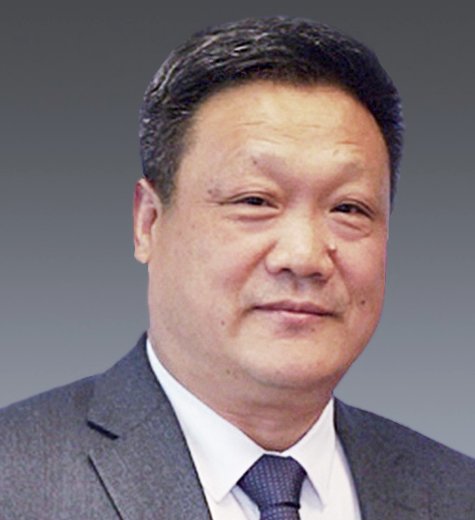
‘This will get our young people fit for the future.’
Interview with Dou Xinshun, principal of the Shijiazhuang Institute of Railway Technology. The institute is one of 13 vocational schools in the Chinese province of Hebei participating in the model project for innovative TVET.
What is it about the German TVET model that makes it so attractive for the Hebei region?
The German TVET system has been a key model for us for the past 30 years. I discovered for myself during an internship at a large German company how important it is to have skilled employees who have been through good-quality, practice-based training, both for businesses’ commercial success and for a country’s social development. I was very impressed by that. We can’t just copy all the structures and content of Germany’s TVET system, of course, but we can adapt core elements of it to improve our own system.
What part does advice from GIZ play in this?
The link between schools and industry is particularly important for us. We want businesses to take on a much greater role in vocational education in the People’s Republic of China in future. Finding out how this can be done is what we want to learn in the project with GIZ. For us, this means an entirely new method of teaching and learning. We want to shift the focus to practical training, which will enable us to prepare our young people for their professional working environment in a much better way. This will get them fit for the future.
Construction technology and vehicle mechatronics are two main subject areas. Why are they so important?
The construction sector in China is recording high growth rates. Buildings account for more than 30 per cent of China’s total energy consumption. Improving energy efficiency in new buildings and minimising the environmental impact of resource use are therefore crucial tasks – here in Hebei Province, too. These are tasks that require know-how, which is why we have to ensure that specialists learn these skills during their initial training, but also that they continue to update their professional knowledge so that they are familiar with new technologies and are able to work with construction materials properly. By being energy aware and environmentally conscious in our actions, we can help ensure that construction is carried out to the correct quality standard.
E-mobility has also gained considerable momentum in China. Maintenance and upkeep of the growing number of electric vehicles calls for increasingly specialised automotive mechatronics engineers – experts whose technical knowledge spans various fields: mechanics, electronics, information technology and, in particular, high-voltage technology. Our Sino-German training project is developing modules for this very purpose, enabling it to play its part in environmental progress.
Insights into our projects in 2019
We are active in some 120 countries with 1,600 projects.
Discover the world of GIZ by learning about examples of projects undertaken in the 2019 reporting year.
We are active in some 120 countries with 1,600 projects.
Discover the world of GIZ by learning about examples of projects undertaken in the 2019 reporting year.
Are you interested in other GIZ projects?
